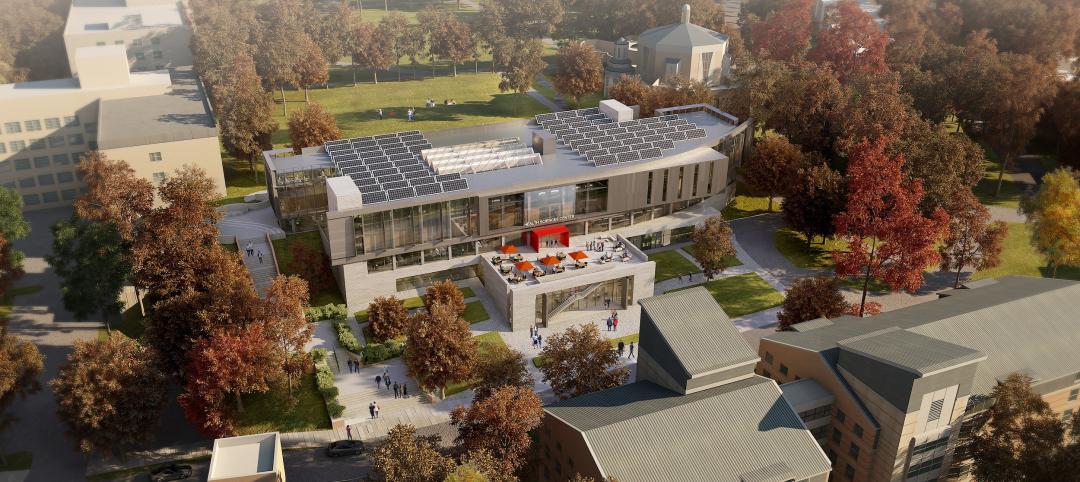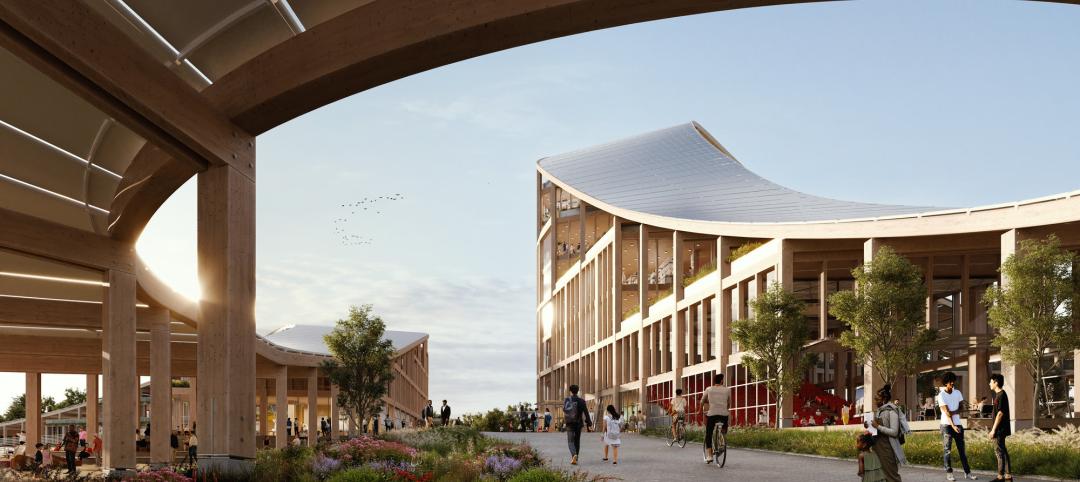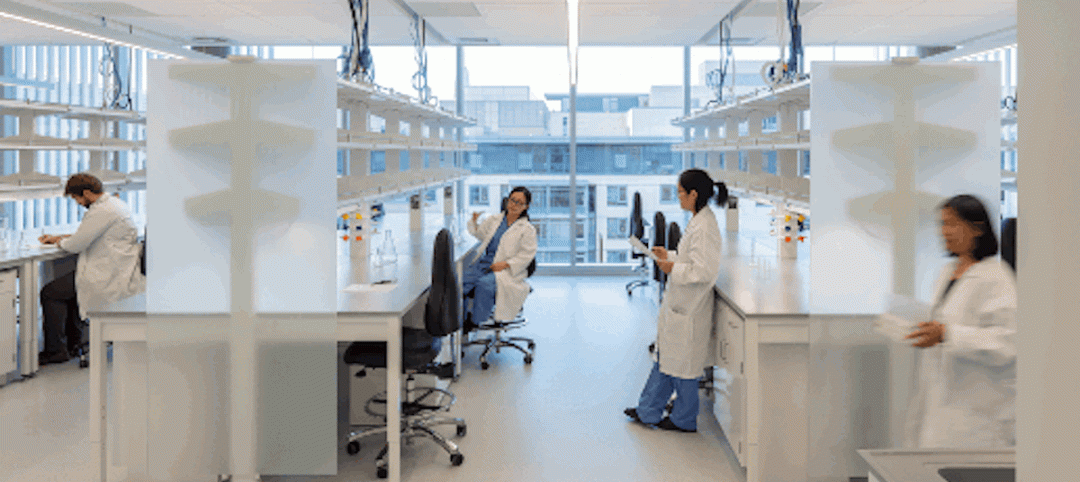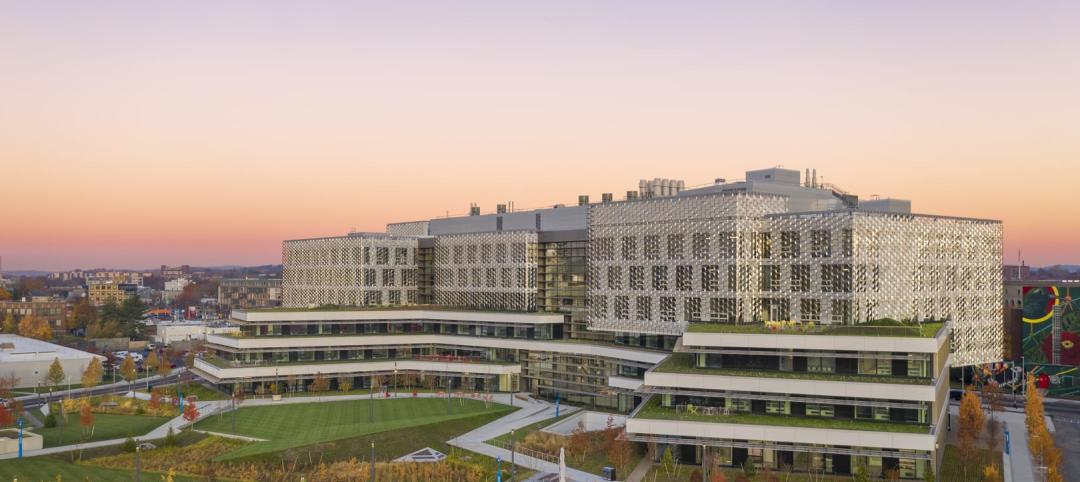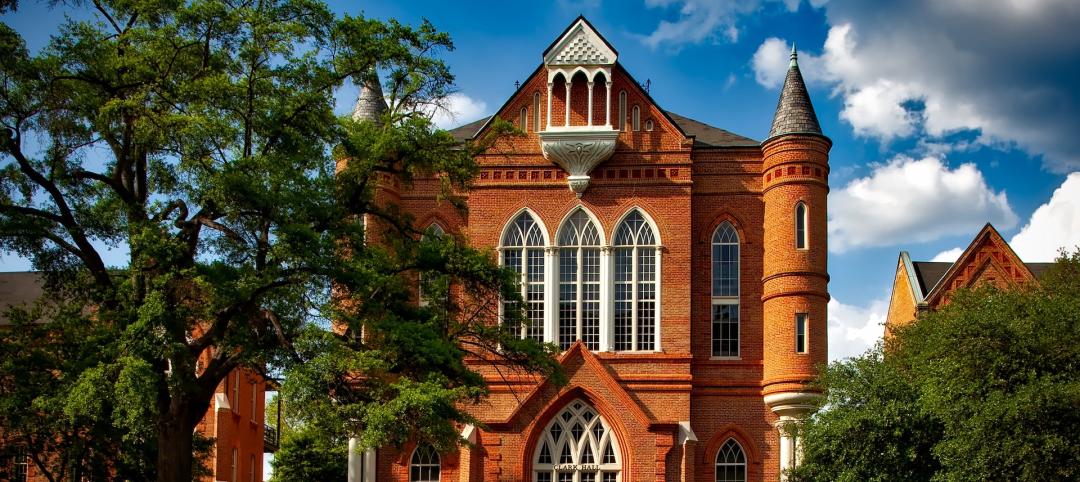When Troy Hall was constructed in 1921, it was used as a dairy building that housed the Washington State University (WSU) Creamery, Ferdinand’s Ice Cream Shoppe, and chemistry classes. After closing its doors in 2010, Troy Hall retired its cheese equipment and decided to focus on the chemistry. Roughly seven years later, Troy Hall reopened as the new home of the Department of Chemistry and School of the Environment.
The Perkins+Will-designed building added almost 15,000 sf of new space to the north of the building, bringing the total square footage of the four-story building up to 50,000. The new space is used for private and open offices and meeting spaces of various sizes.
Photo courtesy Perkins+Will.
An oversized, naturally lit staircase connects the new space with the rest of the 35,000-sf building. Collaborative and informal meeting spaces are located near the new stairwell on each floor. These new spaces are meant to form the new “academic heart” of Troy Hall. Teaching and research labs and flexible spaces that can be used for a variety of uses fill out the rest of the building.
Due to the historic nature of the building, Perkins+Will preserved as much of the historic character as possible. All four walls from the original 1920s façade and the terra cotta from the original entrance were deconstructed, restored, and relocated to the building’s new front door.
Photo courtesy Perkins+Will.
In addition to Perkins+Will, the design-build team also comprised Lydig Construction. The rest of the build team was composed of Parametric, Inc. (CE), Coughlin Porter Lundeen (SE), PAE Engineers (MEP), and Swift Company (landscape architect).
Photo courtesy of Perkins+Will.
Photo courtesy of Perkins+Will.
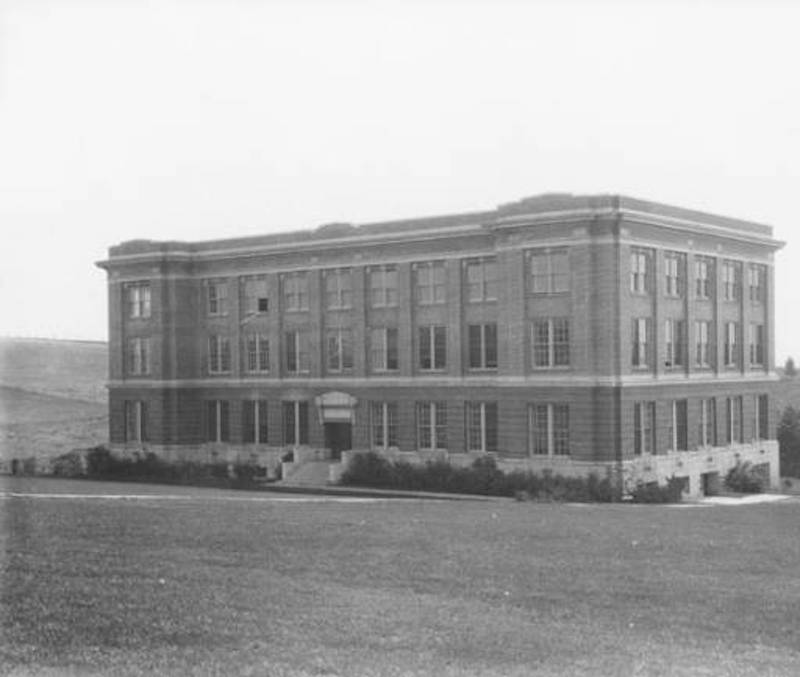 Photo: PC 70 Hutchison Studio Photographs of W.S.U.
Photo: PC 70 Hutchison Studio Photographs of W.S.U.
Related Stories
University Buildings | May 5, 2023
New health sciences center at St. John’s University will feature geothermal heating, cooling
The recently topped off St. Vincent Health Sciences Center at St. John’s University in New York City will feature impressive green features including geothermal heating and cooling along with an array of rooftop solar panels. The geothermal field consists of 66 wells drilled 499 feet below ground which will help to heat and cool the 70,000 sf structure.
Mass Timber | May 1, 2023
SOM designs mass timber climate solutions center on Governors Island, anchored by Stony Brook University
Governors Island in New York Harbor will be home to a new climate-solutions center called The New York Climate Exchange. Designed by Skidmore, Owings & Merrill (SOM), The Exchange will develop and deploy solutions to the global climate crisis while also acting as a regional hub for the green economy. New York’s Stony Brook University will serve as the center’s anchor institution.
University Buildings | Apr 24, 2023
Solving complicated research questions in interdisciplinary facilities
University and life science project owners should consider the value of more collaborative building methods, close collaboration with end users, and the benefits of partners who can leverage sector-specific knowledge to their advantage.
Green | Apr 21, 2023
Top 10 green building projects for 2023
The Harvard University Science and Engineering Complex in Boston and the Westwood Hills Nature Center in St. Louis are among the AIA COTE Top Ten Awards honorees for 2023.
Higher Education | Apr 13, 2023
Higher education construction costs for 2023
Fresh data from Gordian breaks down the average cost per square foot for a two-story college classroom building across 10 U.S. cities.
Market Data | Apr 11, 2023
Construction crane count reaches all-time high in Q1 2023
Toronto, Seattle, Los Angeles, and Denver top the list of U.S/Canadian cities with the greatest number of fixed cranes on construction sites, according to Rider Levett Bucknall's RLB Crane Index for North America for Q1 2023.
University Buildings | Apr 11, 2023
Supersizing higher education: Tracking the rise of mega buildings on university campuses
Mega buildings on higher education campuses aren’t unusual. But what has been different lately is the sheer number of supersized projects that have been in the works over the last 12–15 months.
Contractors | Apr 10, 2023
What makes prefabrication work? Factors every construction project should consider
There are many factors requiring careful consideration when determining whether a project is a good fit for prefabrication. JE Dunn’s Brian Burkett breaks down the most important considerations.
Smart Buildings | Apr 7, 2023
Carnegie Mellon University's research on advanced building sensors provokes heated controversy
A research project to test next-generation building sensors at Carnegie Mellon University provoked intense debate over the privacy implications of widespread deployment of the devices in a new 90,000-sf building. The light-switch-size devices, capable of measuring 12 types of data including motion and sound, were mounted in more than 300 locations throughout the building.
Architects | Apr 6, 2023
New tool from Perkins&Will will make public health data more accessible to designers and architects
Called PRECEDE, the dashboard is an open-source tool developed by Perkins&Will that draws on federal data to identify and assess community health priorities within the U.S. by location. The firm was recently awarded a $30,000 ASID Foundation Grant to enhance the tool.


